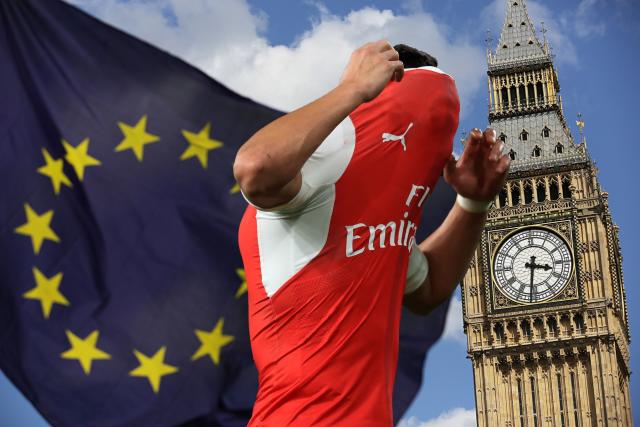
Until now, Leicester City’s title triumph was without doubt the most remarkable thing to happen in English football’s top tier in recent times.
Seasons passed, the worst teams were relegated from the Premier League, the top four splashed the cash. And repeat. That was the custom.
But last night, Theresa May ‘put pen to paper’ on Britain’s letter of departure from the European Union, which is set to plunge the nation into uncertainty.
And football, so often deemed to be untouchable in its own little world, is set to be affected by ‘Brexit.’
Player demands
ems that already British clubs will face a huge task keeping their star players. Think Eden Hazard, Alexis Sanchez, Mesut Ozil. You know, the ones already linked with a move to nations still part of the EU.
This is not, of course, because of the fact both Germany and Spain are still part of the EU, but that the dramatic drop in value of the pound has left those footballing stars short changed. After all, most players’ deals are done in Euros.
Let’s face it, we’ve all been stoutly watching as the Premier League developed the ambition and hunger of players to get better deals.
Well, now we’re faced with a situation where England’s top tier, so highly prized as one of the best and most competitive in world football, loses its star attractions. Great start.
Work permits
And on to the more glaring question; how will this affect transfers?
In theory, football clubs have only really been held by work permits regarding players outside of Europe. Generally, that involves players from South America and Africa.
The rule for non-EEA (European Economic Area) players, as it stands, requires players to be ‘internationally established at the highest level’ and that ‘their employment will make a significant contribution to the development of their sport at the highest level.’
No comments:
Post a Comment